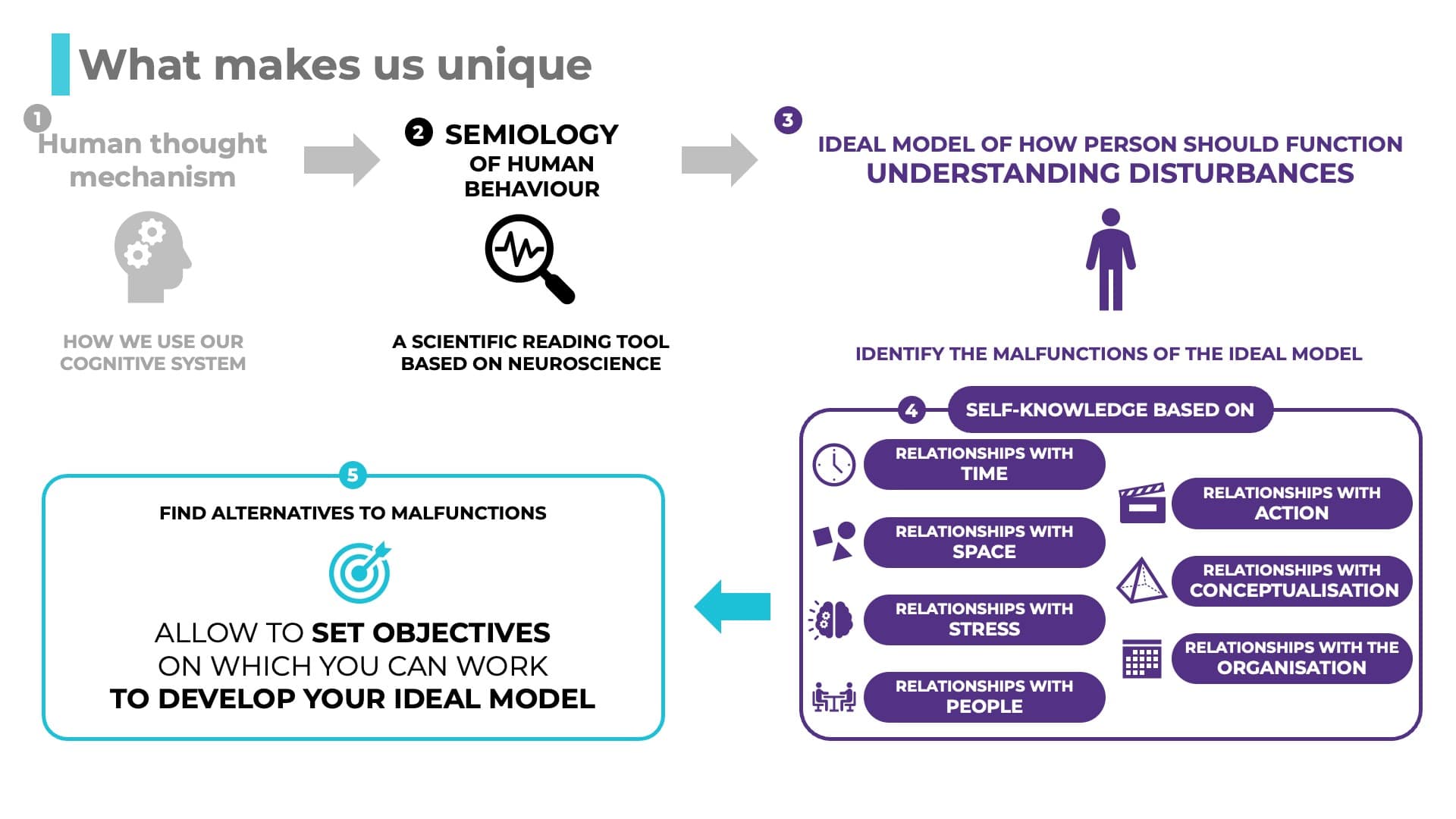Coaching aid: a precise, evolving tool
This tool can prove decisive in identifying the levers that can be used to meet the contract set during individual coaching.
Here are five key points that demonstrate the effectiveness of this scanner

Analysis
Semiology of human behaviour testing delves into the heart of neural processes, offering a deeper understanding of reactionary or actional impulses, emotional memory and the preferred framework for use of our cognitive, analytical and intuitive system.
Coaching
Thanks to its ability to identify the neurological specificities of each individual, semiology of human behaviour testing enables coaching to be personalised more precisely. By understanding a person’s unique cognitive traits, coaches can tailor their approaches to meet the specific needs of each client, maximising results.
Optimisation
The neural data provided by the semiology of human behaviour questionnaire offers a solid basis for optimising an individual’s future performance in various contexts. By understanding the natural and contradictory qualities of a person’s cognitive system, coaches can support the coachee in identifying an alternative that will enable them to maximise their behavioural potential.
Evolution
The semiology of human behaviour questionnaire enables us to track changes in an individual’s cognitive traits over time.
This ability to detect changes in neural patterns offers a more dynamic vision of personal development, enabling coaches to continually adjust their strategies to best support their clients.
Integration
With the constant advances in the field of neuroscience, the human behaviour semiotic questionnaire is better equipped to integrate the latest discoveries and best practices into its evaluation process. This ability to evolve guarantees an increasingly precise analysis for ever greater effectiveness in individual coaching, enabling the coachee to achieve continuous and permanent improvement (autonomy).
In conclusion, the human behaviour semiotic questionnaire offers a holistic and personalised approach to coaching, taking advantage of advances in neuroscience to provide deeper and more precise insights. By adopting this approach, coaches can maximise the impact of their work and help their clients realise their full potential and become the best version of themselves
Testimonial











